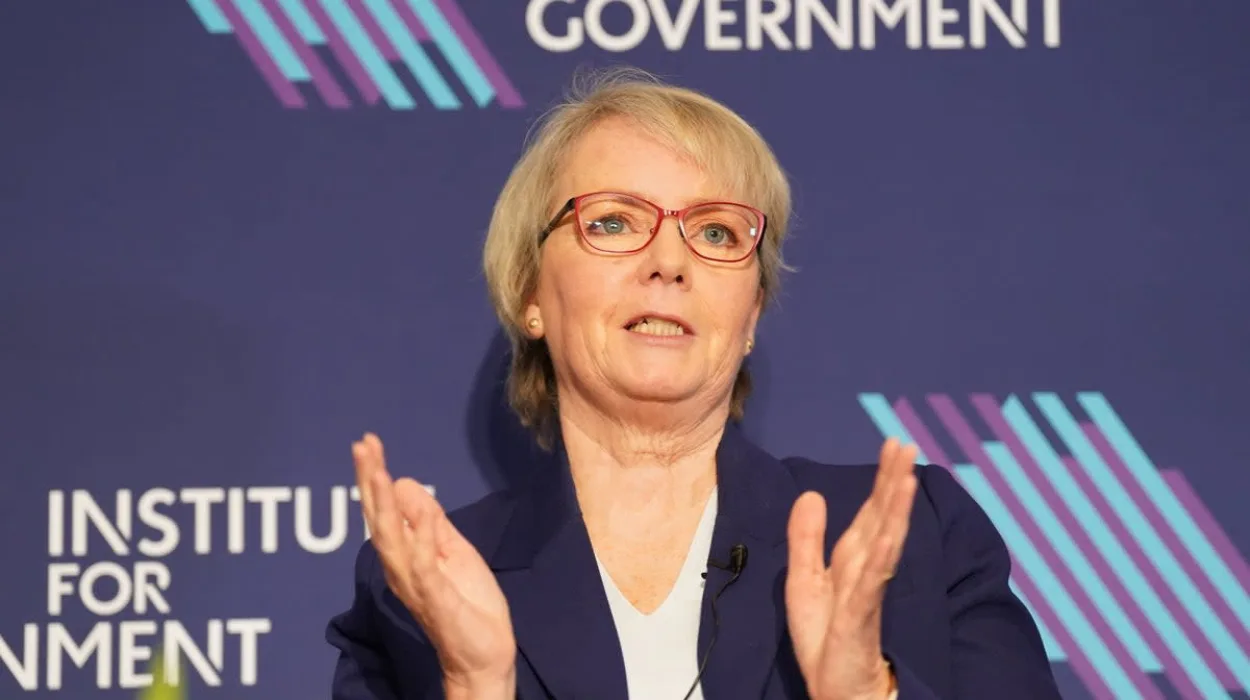UK (Parliament Politics Magazine) – Health Minister Karin Smyth declined to clarify which changing rooms trans women may use after a key UK Supreme Court ruling on biological sex definitions.
As reported by the Independent, following a Supreme Court ruling on legal sex, a government minister couldn’t confirm their right to use women-only changing rooms.
The Supreme Court ruling affirms that transgender women with a gender recognition certificate (GRC) can be excluded from single-sex spaces if it is considered proportionate.
What did Karin Smyth say about trans women and changing rooms?
Labour’s Karin Smyth failed to clarify whether transgender women can use female-only changing rooms after the legal ruling.
During an appearance on Times Radio, she said,
“Look, I think we need to make sure that in this discussion we are following both the law so that it is clear for women and service providers and you know…this varies upon what the provision of those service providers are. Large organisations, smaller organisations, many smaller organisations.”
When asked why changing room access varies, Ms Smyth replied,
“Because some will have unisex provisions, there might only be one bathroom, one changing room in an organisation. It’s a large complex issue, so that’s why people have to be very clear on that guidance.”
In response to public demands for clarity, she said,
“Female changing rooms should be reserved for women.”
When asked about changing room options for trans women, she responded,
“It’s important that both trans women and trans men have dignity in their use of public spaces, an issue that extends to many who feel excluded from these spaces.”
What did UK Supreme Court judges say about the definition of “woman” in the Equality Act?
Five judges from the Supreme Court unanimously ruled on Wednesday that the terms “woman” and “sex” in the Equality Act refer to biological sex. The ruling could affect trans women’s access to women-only services and spaces, creating broad legal consequences.
Lord Hodge, Lady Rose, and Lady Simler stated that the term ‘biological’ is not included in the wording of the Equality Act, while also pointing out that,
“the ordinary meaning of those plain and unambiguous words corresponds with the biological characteristics that make an individual a man or a woman.”
The court’s ruling came after For Women Scotland (FWS) launched a series of legal challenges, including one taken to the UK’s highest court, over the definition of “woman” in Scottish laws that mandate 50% female representation on public boards.
What did Jane Fae say about the impact of the Supreme Court’s ruling on trans rights?
Jane Fae, director of the trans campaign group TransActual, warned that society could face a greater divide, creating spaces that are either welcoming or antagonistic towards queer people. She added that this shift would harm society.
The campaigner said,
“The entire trans community is devastated. Irrespective of the small print on this ruling, the intent seems clear: to exclude trans people wholesale from participating in UK society.”
Baroness Falkner’s views on trans women in women’s spaces
Baroness Kishwer Falkner, head of the Equality and Human Rights Commission, stated the Supreme Court ruling means trans women can no longer access women’s bathrooms or changing rooms.
She said,
“It means single sex services, like changing rooms, must be based on biological sex. If a male person is allowed to use a women only service or facility, it isn’t any longer single sex, then it becomes a mixed sex space.”
Ms Falkner added.
“But I have to say, there’s no law that forces organisations to provide a single sex space, and there is no law against them providing a third space, an additional space, such as unisex toilets, for example.”
What did Labour for trans rights say about the Supreme Court’s decision?
In response to the Supreme Court ruling, Labour for Trans Rights described it as “hugely disappointing,” alleging “constant lobbying by a financially-backed anti-trans network.”
The group said,
“Labour must not follow the example of Donald Trump, and must instead protect the Equality Act – one of Labour’s proudest pieces of legislation – and its legal protections for trans people,”
Adding,
“The Labour Party must stand firmly behind the LGBT+ community.”
Key facts about Gender Recognition Certificates
- Eligibility: Must be 18+, live in acquired gender for 2+ years, and have gender dysphoria diagnosis.
- Application: Submit to Gender Recognition Panel with medical evidence.
- Impact: Legal recognition of acquired gender, allows document changes.
- Privacy: Application is confidential; original birth certificate remains unchanged.


